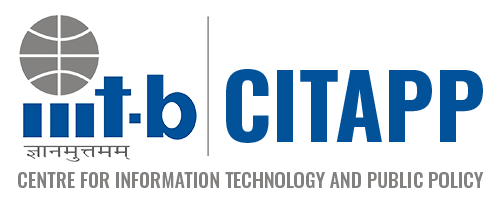Date: 09/11/22
About the talk: PhD student Deepa Austin spoke about exploring ICT-based mechanisms to address system gaps in Severe Acute Malnutrition (SAM) care management by drawing on her work in the state of Karnataka, India.
Abstract:
The invisible plight of ‘Integrated care’: A qualitative study to understand the ‘What’ and ‘How’ of fragmentations in severe acute malnutrition care management in Karnataka, India
India is putting up vigorous and determined efforts to address the longstanding challenge of malnutrition. Despite the fact that the country had launched multiple remarkable programmes like Integrated Child Development Services to improve health and nutritional status of children under 6 years of age, achieving the vision of ‘Kuposhan Mukth Bharat’ by 2022 stands an unrealised goal. India hosts world’s most alarming child wasting rates, falling into ‘serious’ category in Global Hunger Index ,2022 and being ranked at 107th position among 121 world nations. From a total of 22 states surveyed for recent NFHS-5 (2019-2021), only nine of them showed a decline in number of stunted children, ten in wasted children and six in underweight children, remaining states not showing much improvement. The state of Karnataka has 35.4 % of children with stunting, 19.5 % with wasting, 32.9% with underweight and 8.4 % with severe wasting.
One of the major challenges often cited for managing malnutrition is the complex nature of the problem. Malnutrition condition is attributed a multifactorial causation, characterized by interaction of multiple factors-food and feeding practices, socioeconomic conditions, environmental factors, knowledge levels, health systems are some of them. A change in any of these constituent factors may not be linearly proportional, but expected to bring about emergent behaviors that may be predicted/unpredicted and intended/non-intended. Inability to acknowledge such interactions results in ‘fragmentation in care’, one of the major short-comings in the current healthcare system. Hence, complexity theories that appreciates the interaction of ‘system of systems’ can be beneficial in gaining a rich picture understanding of malnutrition management.
It has been studied that mortality rate can be reduced by early identification, treatment and appropriate rehabilitation of severe acute malnourished (SAM) children. Operational guidelines advocate a continuum-of-care through a community-based screening and supplementary nutritional measures through anganwadis, appropriate medical attention through primary health centres and facility-based nutritional rehabilitation(NRC) care for those with medical complications and lastly consistent follow-ups until the child exits the malnourishment cycle. The entire process involves uninterrupted flow of data and communication between the providers and end users. In response to government’s call for multi-sectoral approaches and ICT based convergence mechanisms, in the year 2018, EHRC- IIITB collaborated with VaniVilas Hospital, BMCRI on a project for tracking and managing SAM children. A participatory action research was carried out with the objective of gaining a methodical understanding of various processes involved from a complexity lens and translate these findings to design, develop and facilitate usage of most desirable and feasible digital interventions (DI) in the existing public health settings. Two grey areas studied in-depth were 1) referral and 2) follow-up of SAM. As a preliminary outcome of this project, a web based application- ‘SNEHA-NRC’ was developed using agile principles to initiate reliable and consistent tracking mechanisms at NRCs. The first and second modules were tested, deployed and is currently functional in all district and taluk level NRCs across Karnataka. This action research is ongoing and we are currently working towards the third module addressing the integration of community follow-up. In this talk, I will be presenting some of my findings on the areas of ‘fragmentations’ in SAM care management and the nature of gaps in delivering an ‘integrated SAM care’.
CITAPP Colloquium is a monthly effort for students and research staff working within the domain of IT and Society to present their ongoing work.

